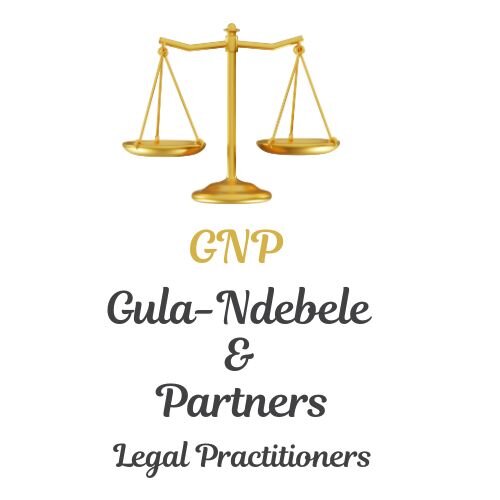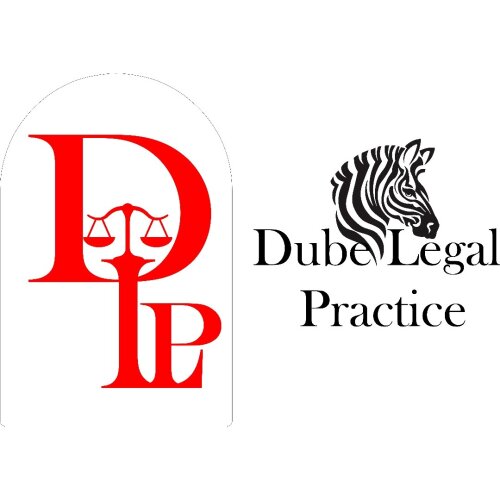Best Foreclosure Lawyers in Bulawayo
Share your needs with us, get contacted by law firms.
Free. Takes 2 min.
Free Guide to Hiring a Real Estate Lawyer
List of the best lawyers in Bulawayo, Zimbabwe
About Foreclosure Law in Bulawayo, Zimbabwe
Foreclosure is a legal process through which a lender, such as a bank or financial institution, seeks to recover the amount owed on a defaulted loan by taking ownership of and selling the mortgaged property. In Bulawayo, Zimbabwe, foreclosure most commonly affects homeowners who cannot keep up with mortgage repayments. Foreclosure procedures are governed by national laws, but local practice often requires an understanding of the specific court processes and property regulations in Bulawayo. The ultimate aim is for lenders to recover outstanding debts, while borrowers may lose their homes or properties if unable to resolve the debt.
Why You May Need a Lawyer
Many people facing foreclosure in Bulawayo are unsure about their legal rights or how to respond to proceedings. Legal assistance can be crucial in the following situations:
- You have received a notice of default or foreclosure from your lender.
- You want to contest the foreclosure or negotiate alternative payment arrangements.
- You suspect errors in the lender's calculations or believe the lender did not follow proper procedures.
- You are considering selling your property to avoid foreclosure.
- You want advice about your rights, obligations, and possible outcomes.
- You are trying to understand the impact of foreclosure on your credit record or future borrowing.
- You need help navigating eviction proceedings following a completed foreclosure.
A lawyer can clarify your options, negotiate on your behalf, and represent you before local courts.
Local Laws Overview
The legal framework for foreclosure in Bulawayo is largely based on the Deeds Registries Act, Mortgage Laws, and other related statutes. Some of the key aspects include:
- Lenders can only begin foreclosure after the borrower defaults on agreed payments.
- The lender must provide formal notification of default and give an opportunity to remedy the breach.
- If the breach is not remedied, the lender typically applies to the High Court for an order of foreclosure and sale.
- Court procedures are followed, including service of documents to the borrower and a hearing.
- Once an order is granted, properties are usually sold through public auction under court supervision.
- Borrowers may be liable for any shortfall if the auction price is less than the outstanding debt.
- Certain defenses, such as improper notice, lack of standing, or procedural errors, may be raised by the borrower.
- Zimbabwean law prohibits unfair or predatory lending practices and provides consumer protections, especially in cases of hardship.
Understanding these laws and procedures is essential to make informed decisions during foreclosure processes.
Frequently Asked Questions
What is foreclosure?
Foreclosure is a legal process through which a lender repossesses and sells a property after the borrower defaults on loan payments, aiming to recover the outstanding debt.
How does the foreclosure process start in Bulawayo?
The process starts when a borrower misses mortgage payments, leading the lender to issue a formal notice of default. If the default is not addressed, the lender may file for foreclosure through the High Court.
Can I stop a foreclosure once it has started?
Yes, in some cases you can halt foreclosure by paying outstanding arrears or reaching an agreement with your lender. Legal intervention or court orders may also provide relief in certain circumstances.
How long does the foreclosure process take in Bulawayo?
The timeline varies, but the process typically takes several months, factoring in notices, court hearings, and auction proceedings.
What happens to my property after foreclosure?
Once the court grants a foreclosure order, your property is usually sold at public auction. The proceeds go to pay off the debt, and any surplus may be returned to you, subject to lender costs.
Will foreclosure affect my credit record?
Yes, foreclosure will negatively impact your credit record in Zimbabwe, making it more challenging to secure future loans or credit facilities.
Are there alternatives to foreclosure?
Possible alternatives include negotiating a payment plan, refinancing your loan, selling your property privately, or applying for voluntary surrender of the property prior to foreclosure.
Can I be evicted after foreclosure?
Yes, if you remain in the property after it has been sold, the new owner or the lender can apply to the courts for an eviction order.
What legal defenses can I use against foreclosure?
You may challenge the lender's compliance with legal procedures, argue improper documentation, or raise issues with the loan terms. Each defense depends on the specific circumstances of your case.
How can a lawyer help me with foreclosure?
A lawyer can assess your case, explain your options, negotiate with lenders, represent you in court, and ensure your legal rights are protected throughout the process.
Additional Resources
If you are dealing with foreclosure issues in Bulawayo, the following resources can be helpful:
- Zimbabwe Law Society - Offers directories of qualified legal practitioners and general legal advice.
- Bulawayo High Court - Handles foreclosure and property matters. The Registrar's office can provide procedural guidance.
- Ministry of Justice, Legal and Parliamentary Affairs - Oversees legal aid and provides access to public legal information.
- Legal Aid Directorate - Offers legal assistance to eligible individuals who cannot afford private lawyers.
- Zimbabwe Lawyers for Human Rights - Advocates for fair treatment and may offer advice in cases of unlawful foreclosures or evictions.
Consulting these resources or reaching out to qualified professionals can provide more detailed guidance based on your situation.
Next Steps
If you are facing foreclosure or have received any legal notices related to your property in Bulawayo, consider the following steps:
- Do not ignore any correspondence or court documents related to foreclosure.
- Gather all relevant documents, including loan agreements, payment records, and any notices from your lender.
- Contact a qualified lawyer who has experience with property and foreclosure cases in Zimbabwe.
- Discuss your options with the lawyer, including any possible defenses, payment arrangements, or alternatives to foreclosure.
- Attend all scheduled court hearings and respond promptly to legal communications.
- If you cannot afford a private lawyer, apply for legal aid or seek help from local organizations.
Taking prompt action and seeking professional legal advice are key steps to protect your rights and interests during foreclosure proceedings in Bulawayo, Zimbabwe.
Lawzana helps you find the best lawyers and law firms in Bulawayo through a curated and pre-screened list of qualified legal professionals. Our platform offers rankings and detailed profiles of attorneys and law firms, allowing you to compare based on practice areas, including Foreclosure, experience, and client feedback.
Each profile includes a description of the firm's areas of practice, client reviews, team members and partners, year of establishment, spoken languages, office locations, contact information, social media presence, and any published articles or resources. Most firms on our platform speak English and are experienced in both local and international legal matters.
Get a quote from top-rated law firms in Bulawayo, Zimbabwe — quickly, securely, and without unnecessary hassle.
Disclaimer:
The information provided on this page is for general informational purposes only and does not constitute legal advice. While we strive to ensure the accuracy and relevance of the content, legal information may change over time, and interpretations of the law can vary. You should always consult with a qualified legal professional for advice specific to your situation.
We disclaim all liability for actions taken or not taken based on the content of this page. If you believe any information is incorrect or outdated, please contact us, and we will review and update it where appropriate.













